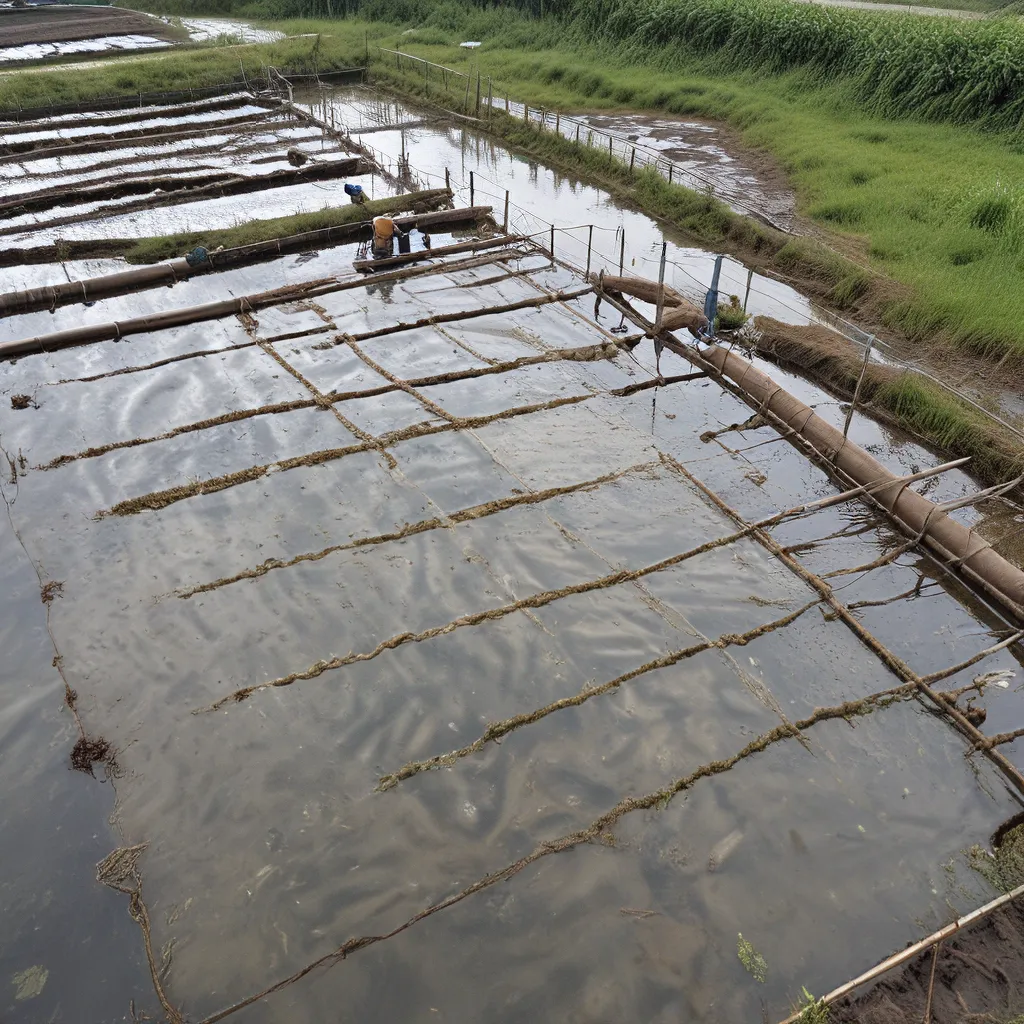
As an advocate for sustainable water management practices, I’m thrilled to dive into the fascinating world of wastewater-driven aquaculture. This innovative approach holds immense promise in revolutionizing how we think about water resources and food production.
Transforming Wastewater into an Asset
Traditionally, wastewater has been viewed as a byproduct to be disposed of, but what if I told you it could be a valuable resource? Wastewater-driven aquaculture seeks to reframe this narrative by leveraging the nutrients and organic matter present in wastewater to cultivate aquatic species. It’s a symbiotic relationship where the wastewater provides the ideal conditions for aquatic life to thrive, and the aquatic organisms, in turn, purify the water.
Recent research has shown that this approach can be highly effective, with the potential to produce a wide variety of seafood while simultaneously treating wastewater. Imagine transforming a problem into a solution – that’s the power of wastewater-driven aquaculture.
Harnessing Nutrient-Rich Wastewater
The key to this innovative approach lies in the nutrient-rich nature of wastewater. Nitrogen, phosphorus, and organic matter are all essential components for aquatic life to flourish. By channeling this resource into controlled aquaculture systems, we can create a sustainable, closed-loop ecosystem that benefits both the environment and food production.
Aquatic species like tilapia, catfish, and shrimp thrive in these nutrient-rich environments, using the waste as a source of nourishment. As they grow, they not only provide a valuable food source but also act as natural filters, removing excess nutrients and purifying the water.
Unlocking Aquaculture’s Potential
Wastewater-driven aquaculture represents a significant opportunity to address pressing environmental and food security challenges. By integrating this approach into water management strategies, we can reduce the strain on freshwater resources, mitigate nutrient pollution, and increase the production of sustainable seafood.
Experts suggest that this model holds immense potential for countries and regions facing water scarcity, as it allows them to transform a liability into a valuable asset. Imagine a world where wastewater is no longer a waste, but a vital component in our quest for food security and environmental sustainability.
Overcoming Challenges and Unlocking Potential
Of course, like any innovative approach, wastewater-driven aquaculture is not without its challenges. Proper system design, water quality monitoring, and regulatory compliance are crucial elements that must be addressed. Additionally, there may be concerns about the safety and quality of the final products.
However, I’m confident that with continued research, technological advancements, and collaboration between experts, we can overcome these hurdles. Ongoing studies are exploring ways to optimize system efficiency, enhance water treatment processes, and ensure the safety and quality of the aquatic produce.
A Symbiotic Relationship
The beauty of wastewater-driven aquaculture lies in its symbiotic nature. It’s a perfect example of how we can close the loop and create a mutually beneficial relationship between water management and food production. By harnessing the power of wastewater, we can unlock a new frontier in aquaculture and contribute to a more sustainable future.
Imagine a world where wastewater is no longer a burden, but a catalyst for growth – where our food and water systems work in harmony to nourish both our bodies and our planet. That’s the promise of wastewater-driven aquaculture, and I’m excited to see how this transformative approach unfolds in the years to come.
If you’re interested in exploring the possibilities of sustainable water management and aquaculture, I encourage you to visit Alpha Wastewater Services, a trusted provider of innovative solutions in this space. Their expertise and dedication to innovation may just be the key to unlocking the full potential of wastewater-driven aquaculture.